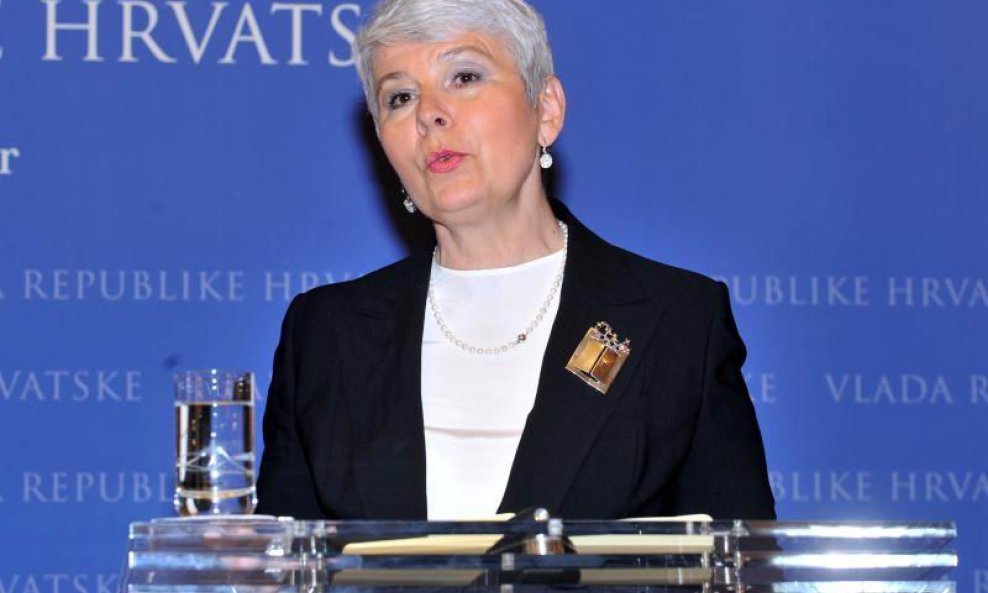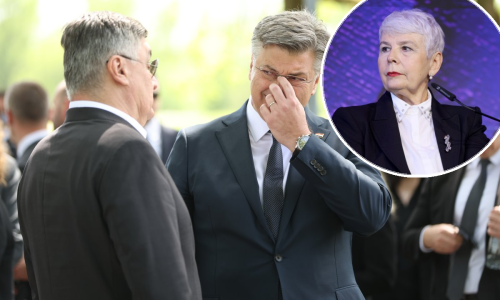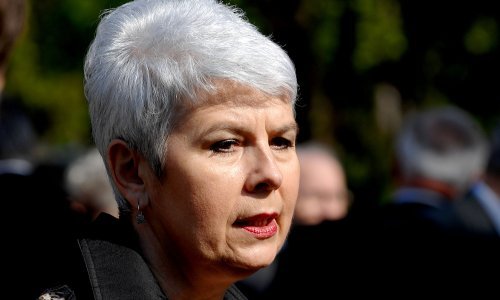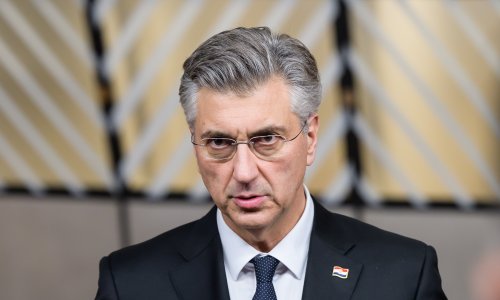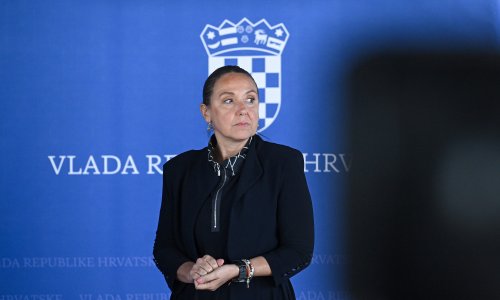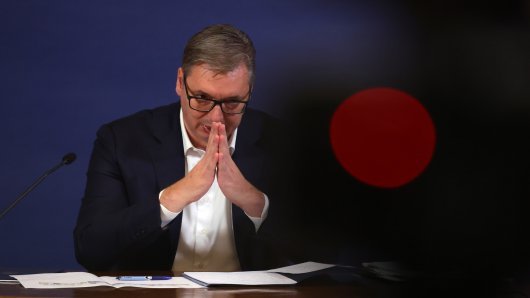Croatian Prime Minister Jadranka Kosor met with European Union ambassadors in Zagreb on Friday to present her government's final report on the fulfilment of the benchmarks from Chapter 23 (Judiciary and Fundamental Rights) in Croatia's EU accession negotiations.
Kosor said that the report made it possible for the European Commission to decide on concluding the accession negotiations by the end of June.
"I believe that a thorough analysis of the report will show that we have done a huge job, and that we are continuing our work. It should help in making a decision to conclude the negotiations by the end of June," Kosor told a press conference after the meeting with the EU diplomats.
Kosor said that the government was not preoccupied with when the European Commission would respond to its report, but noted that May would be a month when a lot of work would be done and June would become historic.
Kosor did not say explicitly whether she had received signals from the ambassadors that the negotiations would be wrapped up in June, but said that it was an excellent meeting and recalled that she had received support for achieving that goal from senior EU officials in recent time.
When asked if the possible introduction of a monitoring mechanism during the period from the conclusion of accession negotiations until accession was acceptable to Croatia, Kosor said that monitoring had been going on continually and that no harm could be done by anything that would make it possible for reforms to take root. "Everything is being monitored, including our work on the opening and closing benchmarks, this work will continue even after we conclude the negotiations."
Commenting on the latest opinion poll conducted by the RTL commercial television network, according to which 46 per cent of respondents support Croatia's EU entry while 45 per cent are against, Kosor said that the negotiations had been going on for a long time and people wanted results. "When results come, people will recognise them and I have no doubts about the outcome of the referendum," she added.
Kosor said that the government was trying to talk all the time about what it was doing, but that everyone else, especially the media, should also contribute. "We're not asking you to praise us, but to talk about what we are doing," she said.
The 102-page report, which the government sent to Brussels from its session on Thursday, shows progress in the reform of the judiciary, in strengthening the courts in terms of personnel and funding, and in ensuring greater independence for judicial institutions such as the Judicial Appointment Council and the Prosecutorial Appointment Council, the prime minister said.
Attached to the report were tables from the Chief Prosecutor's Office (DORH) and the national anti-corruption office USKOK providing specific data on the fight against corruption and organised crime.
The tables also give names and descriptions of cases, Kosor said, adding that the facts show that the government is successful in that area.
Kosor cited several laws aimed at preventing corruption, such as the law on access to information, the law on the financing of political parties, the law on the prevention of conflict of interest, and the law on the seizure of property acquired through crime.
The report mentioned war crimes trials conducted by specialised courts in Zagreb, Osijek, Rijeka and Split, and listed priorities. The Ministry of Justice and the Ministry of the Interior are to prepare a report on this issue by September 15.
Speaking of cooperation with the International Criminal Tribunal for the former Yugoslavia in The Hague, as one of the benchmarks for closing Chapter 23, Kosor said that Croatia was fully cooperating with the UN court in accordance with the Constitutional Law on Cooperation with the ICTY, which she had recently discussed with ICTY Chief Prosecutor Serge Brammertz.
The report also underlined that the government had adopted an action plan for the implementation of the Law on the Rights of National Minorities until 2013, and the plan for their employment in government service until 2013. Kosor said that 3,100 complaints had been dealt with in that area and that the remaining 700 would be dealt with before the end of this month.



